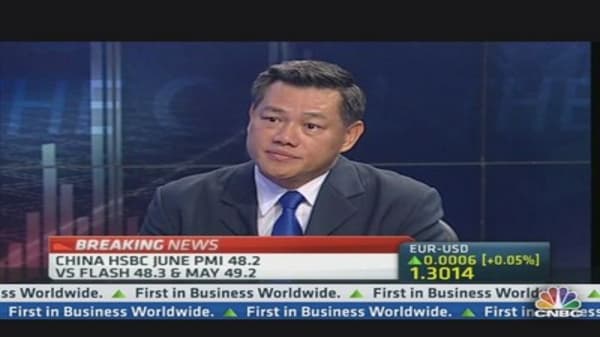The continued decline in China's manufacturing activity, reflected in twin manufacturing surveys released on Monday, highlights the risk the world's second largest economy now poses to global growth, experts told CNBC.
China's official purchasing managers index (PMI) slipped to 50.1 in June from 50.8 in May, according to data from the National Bureau of Statistics. The final reading of HSBC PMI, meanwhile, fell to a nine-month low of 48.2, below the flash estimate of 48.3 and down from 49.2 in the previous month.
A reading above 50 indicates expanding activity and one below 50 signals contraction.
(Read More: Even Resilient Yuan Is Feeling China's Pain)
"I think the story for China is basically that there is no story left. Economic activity in China has peaked and we think that data will surprise on the downside," Sailesh Jha, chief strategist at Arcus Capital Singapore, told CNBC on Monday.
A weakening of both external and domestic demand weighed on manufacturers last month, with falling orders and rising inventories plaguing factories, HSBC said, driving the index further into contractionary territory.
Both the official and HSBC employment sub-indexes showed that job shedding intensified last month. The pace of job cuts was the fastest since last August, the HSBC sub-index showed.


.530x298.jpg?v=1372650166)


